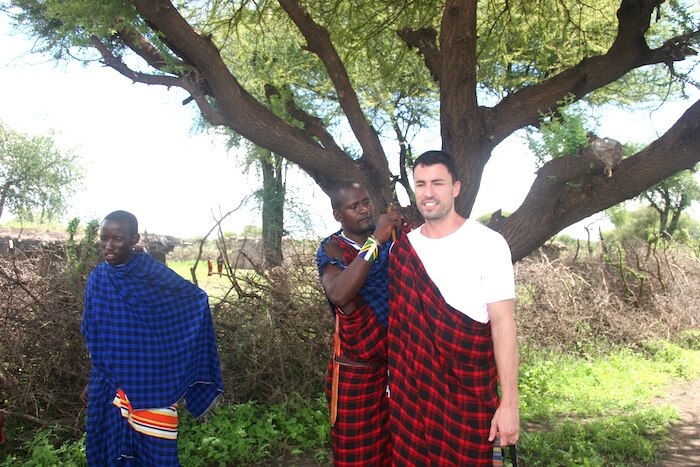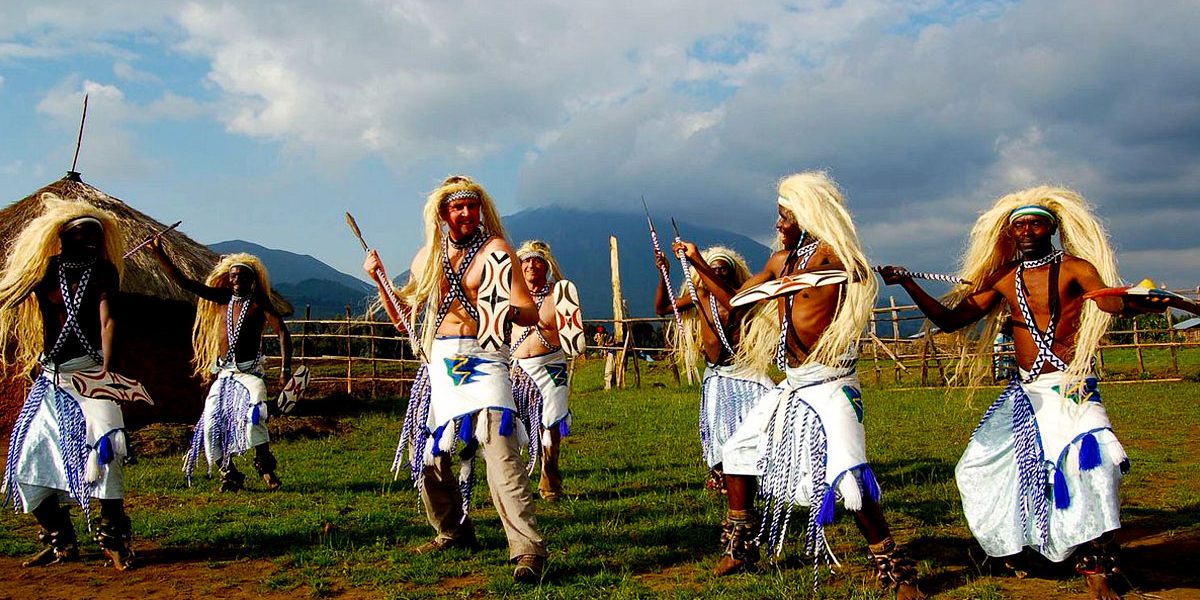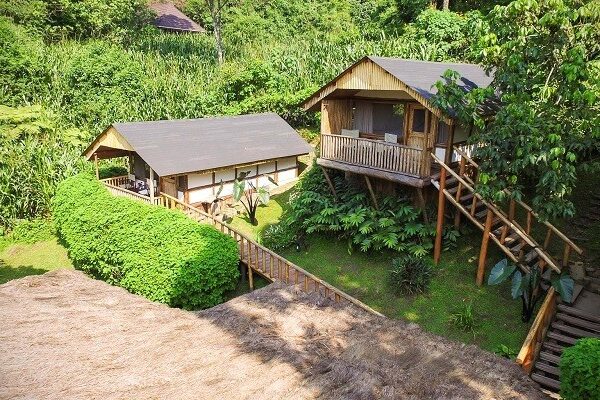Experience Africa Village Lifestyle – Authentic African Culture and Community with WildHorn Africa
There are few travel experiences as transformative, intimate, and memorable as the chance to experience Africa’s village lifestyle. Beyond the sweeping savannahs, the glittering cities, and the famous national parks lies a deeper Africa — one that lives in its villages, where time slows, hearts open, and traditions thrive. It is here that the continent reveals its truest form — vibrant, spiritual, resilient, and connected to nature in ways the modern world has forgotten.
To step into an African village is to enter a living world of rhythm and heritage. The songs of farmers at dawn, the laughter of children at play, the scent of wood smoke curling through the air — all weave a tapestry of life that has endured for centuries. Every day unfolds with purpose, shaped by the land and guided by ancient wisdom.
For travelers seeking authenticity, understanding, and human connection, village life offers a rare kind of truth. It is an invitation to witness Africa not as a spectacle, but as a story — a story written in community, tradition, and shared humanity.
The Meaning and Beauty of the African Village Lifestyle
The African village lifestyle represents the foundation of the continent’s cultural and social identity. It is a way of life where relationships define existence, where nature dictates rhythm, and where community forms the heartbeat of survival. Unlike the fast pace of city life, villages offer a world where values are measured not in possessions but in belonging.
Every African village, whether nestled in the rolling hills of Uganda, the deserts of Namibia, or the plains of Tanzania, holds a unique identity. Architecture, language, and daily routines differ from one region to another, yet all share common threads — hospitality, respect for elders, and deep-rooted spirituality. The African village is a mosaic of unity and diversity, an ever-evolving expression of history and heritage.
In these spaces, time feels eternal. The soil holds the footprints of ancestors, and every tree seems to whisper stories of the past. To experience village life is to reconnect with something primal and grounding — the understanding that humanity is part of nature, not separate from it.
Daily Life and the Rhythm of Existence
The day in an African village begins long before sunrise. The first light of dawn finds life already in motion. Roosters crow, cattle stir, and the air fills with the soft hum of morning routines. Women begin their tasks — fetching water, grinding grains, preparing meals over open fires — while men prepare for work in the fields or forests.
There is no rush, only rhythm. The African village lifestyle follows the natural cycle of the sun and seasons. Farming, fishing, herding, or crafting are performed not as chores but as acts of sustenance and connection. Work and life blend seamlessly, guided by cooperation rather than competition.
Children grow up surrounded by learning — not confined to classrooms alone, but immersed in the wisdom of elders and the practical knowledge of daily living. They learn how to cultivate the land, care for animals, and understand the language of the earth. Their education extends beyond books, shaping their respect for culture, family, and nature.
As the day ends, the village transforms. The setting sun casts golden hues over fields, and laughter echoes from every corner. Evenings are for stories, for song, and for togetherness. Under starlit skies, people gather around fires to share news, wisdom, and joy. These moments remind visitors that the essence of life lies not in speed or wealth, but in shared experience.
Traditions, Rituals, and Cultural Identity
The village lifestyle in Africa is deeply rooted in tradition. Every milestone — from birth to adulthood, marriage to death — is marked by ceremony. These rituals are not mere formalities but profound expressions of faith, identity, and continuity.
Birth celebrations welcome new life with blessings, songs, and symbolic gestures that link the child to ancestors. Initiation rites guide young people into adulthood, teaching courage, discipline, and moral strength. Weddings unite not only couples but entire families and clans, celebrated with dance, feast, and laughter that can last for days.
Even in mourning, African villages express unity and reverence. Funerals are both solemn and celebratory — affirmations of life and legacy. The deceased are remembered as part of a spiritual continuum that binds the living to their ancestors.
Spirituality flows through every custom. Villagers believe that nature holds sacred power — rivers, trees, and mountains are not mere landscapes but living spirits deserving of respect. Prayers and offerings maintain harmony between people and the natural world.
Travelers fortunate enough to witness such traditions find them both moving and enlightening. They reveal a worldview that celebrates balance, belonging, and gratitude — values increasingly rare in modern society.
 The Power and Grace of African Women
The Power and Grace of African Women
No exploration of Africa’s village lifestyle would be complete without honoring the women who sustain it. They are the silent architects of daily life — mothers, farmers, healers, and leaders whose strength and tenderness keep communities thriving.
From the first light of dawn until late into the night, women work tirelessly. They tend gardens, prepare meals, fetch water, care for children, and craft beautiful creations from natural materials. Yet, beyond their physical labor lies emotional and spiritual leadership. They teach values, preserve customs, and ensure the transmission of culture from one generation to the next.
In many villages, women form cooperatives that drive local economies. They sell crafts, manage microfinance groups, and advocate for education and environmental preservation. Their resilience and ingenuity represent the spirit of Africa — patient, creative, and unyielding.
Visitors often describe the women they meet in African villages as unforgettable — their laughter contagious, their grace humbling, their eyes filled with the quiet wisdom of centuries. To experience their daily life is to understand that empowerment, in Africa, begins not with policy but with community and purpose.
Hospitality and the Spirit of Ubuntu
African hospitality is legendary. It is guided by the philosophy of Ubuntu, a word found across Southern Africa that means “I am because we are.” In the villages, this concept is not abstract; it is a lived reality. Guests are treated as family, strangers as friends, and generosity as a duty of the heart.
Upon arrival, visitors are often greeted with warm smiles, traditional songs, and heartfelt welcomes. Even in the simplest of homes, space is made for guests, and food is shared with pride. A bowl of millet porridge, roasted plantains, or freshly brewed tea becomes a gesture of connection.
This hospitality goes beyond courtesy; it is sacred. It reflects the belief that to care for others is to affirm one’s humanity. Travelers who experience this kindness often leave transformed — reminded that the world’s richest hearts can reside in the humblest places.
Music, Dance, and Artistic Expression
In the African village, music and dance are not just art forms; they are languages of life. Every event — from a harvest to a wedding, from mourning to celebration — is expressed through rhythm, movement, and song.
The beat of drums reverberates across the land, calling people together. It is said that the drumbeat mirrors the heartbeat of the earth, connecting the living to the ancestors. Villagers dance with abandon, their movements fluid and symbolic. Each gesture tells a story — of gratitude, of love, of triumph over hardship.
Art is equally central to village life. Beadwork, pottery, textiles, carvings, and masks are created not only for beauty but for meaning. Patterns and colors carry messages — of clan identity, status, or spiritual belief. These creations reflect both individuality and collective heritage, making each piece a living record of culture.
To participate in such artistry, even as an observer, is to feel Africa’s creativity and spirit come alive. It is to see that art, in its purest form, is not confined to galleries but thrives wherever there is life, community, and imagination.
Education, Knowledge, and the Future
Education in African villages holds immense value. It is seen not merely as a path to modern success but as a means to preserve and adapt tradition. In many villages, schools are built by the community itself, often through shared labor and limited resources.
Children attend classes that teach both modern subjects and traditional wisdom. Lessons are often conducted beneath trees or in modest classrooms, but the passion for learning burns brightly. Teachers — often locals — serve not only as educators but as role models, bridging old and new worlds.
Informal education continues outside the classroom. Elders teach through storytelling, guiding youth in moral reasoning, environmental care, and history. Skills such as farming, herding, or crafting are passed on through mentorship and example.
This holistic approach ensures that progress does not erase heritage. Instead, it creates a generation capable of leading Africa forward while remaining grounded in its roots. Visitors who interact with village schools often speak of hope — a quiet yet powerful optimism that radiates from every child’s smile.
Sustainability and Responsible Village Tourism
As travelers increasingly seek authentic experiences, village tourism has emerged as a meaningful way to connect cultures. Yet, such experiences must be conducted with respect and care to ensure they benefit the communities they celebrate.
Sustainable tourism emphasizes partnership. Local residents lead the tours, manage homestays, and sell their crafts, ensuring that economic benefits remain within the village. Visitors are encouraged to engage mindfully — to listen, learn, and contribute positively to the community.
Operators like WildHorn Africa collaborate closely with local leaders to promote responsible travel. Their approach honors culture rather than commodifies it, allowing guests to witness authenticity without exploitation. Every visit supports education, infrastructure, and conservation efforts, ensuring that tourism uplifts rather than disturbs.
Through responsible engagement, travelers become part of Africa’s story — not as observers but as allies in preserving its cultural legacy.
 The Emotional Power of Living Among Villages
The Emotional Power of Living Among Villages
The most profound impact of experiencing Africa’s village lifestyle lies not in what is seen, but in what is felt. It is the stillness of dawn, the laughter shared over food, the warmth of strangers who treat you like kin. It is the moment when you realize that wealth is not measured in money, but in meaning.
For many travelers, these experiences become life-changing. The simplicity of village life challenges modern notions of fulfillment. It reminds us that happiness grows from gratitude, not accumulation; from connection, not isolation.
Sitting by a fire as stars blanket the sky, one begins to understand why the African village endures. It is not a place left behind by time — it is a sanctuary from it. It preserves the essential truths of humanity that modern life too often forgets.
Where to Experience Africa’s Village Lifestyle
Across the continent, countless destinations invite travelers to immerse themselves in authentic village life. In East Africa, Uganda’s Batwa and Bakiga communities near Bwindi offer glimpses into forest traditions and storytelling that date back centuries. Rwanda’s cultural villages near Volcanoes National Park bring ancient music and dance to life alongside warm hospitality.
Kenya and Tanzania’s Maasai villages provide an intimate look at pastoral life, where cattle, color, and community form an inseparable bond. In Southern Africa, Zulu, Himba, and Tswana villages showcase distinct traditions of art, faith, and family.
Each village holds something unique — yet all share one truth: the spirit of Africa is alive and thriving in its people.
Discover the True Africa with WildHorn Africa
To experience Africa’s village lifestyle is to step into the heart of authenticity. It is to see, hear, and feel a way of life that reveals what the world often overlooks — the strength of simplicity, the beauty of connection, and the wisdom of living in harmony.
In every village, every song, and every smile lies the story of a continent unbroken by time. This is Africa as it truly is — welcoming, wise, and full of soul.
For those who wish not just to visit Africa but to understand it, the villages await — ready to share their warmth, their stories, and their spirit.
Book your next Africa tour and cultural safari with WildHorn Africa, and let the heartbeat of Africa’s villages guide you into a world where tradition, humanity, and nature become one unforgettable experience.









